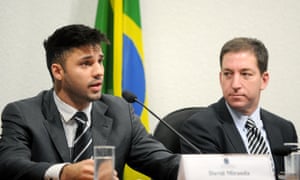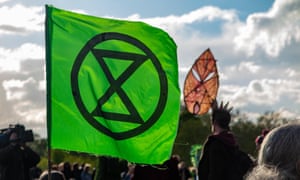How the Israeli military censor killed a story about ‘terrorist’ bombing campaign in Lebanon in 1980s
 Front page story in the New York Times in 1983 on a terrorist bombing that killed Palestinians in Lebanon. The bombing campaign has now been confirmed as an Israeli one that claimed 100s of innocent lives
Front page story in the New York Times in 1983 on a terrorist bombing that killed Palestinians in Lebanon. The bombing campaign has now been confirmed as an Israeli one that claimed 100s of innocent lives
June, 1980. Over the previous weeks Israeli air and sea attacks on “Palestinian and leftist positions” have been “almost nightly events.” According to Christian Science Monitor journalist Helena Cobban, however, a “more sinister Israeli hand is seen behind some of the increased unrest throughout the country.” Indeed, “several enormous car bombs have exploded here recently in locations with a heavy concentration of Palestinian or Syrian population.” At least two were claimed by a group calling itself the Front for the Liberation of Lebanon from Foreigners (FLLF).
The mysterious group’s modus operandi, Cobban writes, “seem[s] to indicate the influence of some Israeli extremist groups” like the ones behind car-bomb attacks against three Palestinian mayors in the West Bank on June 2. To an “embittered Palestinian scholar,” who spoke to Cobban, they also brought to mind “the terror-bombings launched against Palestinian villages by Mr. Begin’s own Irgun extremist group” in the 1940s. “Then, the aim was to drive us out of Palestine, and they largely succeeded… Now they want to drive us out of Lebanon. Where can we go? The Israelis are going mad, but this time round, the world cannot support their terror. Or can it?”
Over the following 3 years, hundreds of Palestinian and Lebanese civilians were killed, and many more wounded, by explosive devices hidden in baskets, on bicycles or mules, in cars or trucks. After each attack, calls to the media were placed claiming responsibility in the name of the FLLF. Palestinian and Lebanese officials repeatedly insisted that the FLLF was merely a fiction intended to hide the hand of Israel and its Christian rightist allies. Israeli officials rejected such accusations, insisting rather that the bombings were part of an internecine war amongst rival Arab factions. Several of these bombings are included in the RAND and START “terrorism databases.”
In August 2012, the New Yorker published a profile of Meir Dagan, the former head of Mossad. Dagan was known as a “ruthless agent,” David Remnick writes, and his career was rumored to have included “operations of all kinds – car bombing, poisoning, cyberwar.” Indeed, before Israel’s invasion of Lebanon in 1982 Yigal Sarna and Anat Tal-Shir, two reporters for the Israeli daily Yediot Ahronot, had investigated the possibility that Dagan had “led a secret unit across the border whose mission was to instigate terrorist events that would justify an incursion.” Remnick adds: “Military censors killed the story, Sarna told me. Dagan acknowledges the censorship but denies the thrust of the story.”
Israeli journalist Noam Sheizaf posted Remnick’s story on his Facebook page and, as he wrote in 972 Magazine, Sarna commented as follows: “Indeed, the censorship [on these stories] has been on for years. Horrifying things were done there, not just planned.”
Yet another profile of Dagan published in Haaretz in 2016 presented a more detailed account of the story and, this time, explicitly mentioned the FLLF.
Before the invasion of Lebanon in 1982, military correspondent Amir Oren reported, an officer who served under Dagan “claimed that on orders from the IDF, under cover of the Front for the Liberation of Lebanon from Foreigners, deadly strikes were being carried out against Palestinian targets, and the casualties included innocent civilians.” That anonymous complaint “reached the press,” he said, “and from there – even though the military censor forbade publication – it reached Begin.”
The complaint named four senior Israeli officials: Raphael Eitan, the IDF Chief of Staff; Meir Dagan, the commander of the South Lebanon Region; head of Northern Command Avigdor Ben-Gal; and Shlomo Ilya, an intelligence officer. Yehoshua Saguy, the head of Military Intelligence, looked into the allegations and concluded that they were accurate. His complaint led nowhere however: according to Oren, Prime Minister Menachem Begin “didn’t want to believe it, especially on the eve of an election.”
In February 2018 Ronen Bergman, at the time the senior correspondent for military and intelligence affairs for Yedioth Ahronoth, published Rise and Kill First: The Secret History of Israel’s Targeted Assassination.

Ronen Bergman with his book at the Fifth Avenue Barnes and Noble in February 2018. Photo from Instagram.
This extensively-researched book contains several pages devoted to the FLLF operation. Based on interviews with officials involved in the operation or who were aware of its existence at the time, it confirms that the Palestinians had been right all along: the FLLF was indeed a creation of Israel, a fictitious group used by senior officials to hide their country’s hand in a deadly ‘terrorist’ campaign.
The group was created by Eitan, Ben-Gal and Dagan in 1979. In the words of David Agmon, head of the Northern Command Staff of the IDF, the objective was to “cause chaos among the Palestinians and Syrians in Lebanon, without leaving an Israeli fingerprint, to give them the feeling that they were constantly under attack and to instill them with a sense of insecurity.” Bergman makes no reference to Shlomo Ilya, the intelligence officer mentioned in Oren’s Haaretz article.
In its early stage, the group used explosives “concealed in cans of oil or preserves” that were built in a metal shop of Kibbutz Mahanayim where Ben-Gal lived at the time. The explosives themselves were sourced from the IDF’s bomb disposal unit so as to “minimize the chance that any connection with Israel might be revealed.”
Eitan, Ben-Gal and Dagan were unable to keep their operation airtight however. In Rise and Kill First, Bergman provides fascinating accounts of early (and unsuccessful) efforts by senior officers and members of the government to push back against such methods, accounts that confirm the accuracy of Remnick’s and Oren’s stories.
In 1980 Yehoshua Saguy, the head of Military Intelligence, informed Deputy Defense Minister Mordechai Zippori that Ben-Gal was conducting “rogue operations” inside Lebanon. In one instance, a car bomb meant for PLO personnel had detonated on a main road in southern Lebanon, killing an unspecified number of “women and children.”
In June 1980, the month when Helena Cobban’s Christian Science Monitor story was published, a meeting was convened in the Prime Minister’s office. Zippori accused Ben-Gal of conducting “unauthorized actions in Lebanon” and insisted that “women and children have been killed.” Ben-Gal replied that this was incorrect (“Four or five terrorists were killed. Who drives around in Lebanon in a Mercedes at 2 a.m.? Only terrorists”) and assured Menachem Begin that he had received permission for the action. The Prime Minister accepted these assurances and, Bergman writes, from that point on “the top brass realized there was no point in asking the prime minister to rectify the situation.”
The story investigated by Yigal Sarna and Anat Tal-Shir was accurate. And Dagan’s denials to Remnick were lies.
When the Israeli military censor banned publication of the story, therefore, it covered up serious state crimes that had already been committed. Even more problematically, this decision made it possible for Israel to continue, following Likud’s (very narrow) victory in the 1981 legislative elections, to use the FLLF to conduct an ever deadlier, and fully covert, campaign of “terrorism.”
On August 5, 1981, Menachem Begin picked Ariel Sharon to replace him as Defense Minister. As Israeli historians have long documented, for the next 10 months the Begin government engaged in military operations, from the air and the ground, in order to goad the Palestinians into a military response that would be used to justify a major military offensive into Lebanon.
As Rise and Kill First documents in detail, the FLLF bombings were an integral part of this Israeli strategy of provocation. Indeed, the new Defense Minister immediately decided to “activate” the FLLF operation and sent Eitan as his personal emissary to “keep an eye” on the clandestine operation. Remarkably, at the time Eitan was serving as Begin’s “counterterrorism” adviser.
Sharon “hoped that these operations would provoke Arafat into attacking Israel,” Bergman writes, “which could then respond by invading Lebanon, or at least make the PLO retaliate against the Phalange, whereupon Israel would be able to leap in great force to the defense of the Christians.”
“By mid-September 1981,” he explains, “car bombs were exploding regularly in Palestinian neighborhoods of Beirut and other Lebanese cities.”
Several of these bombings were covered in the US press at the time.
On September 17, 1981, a car bomb exploded outside of the command center shared by the PLO and its Lebanese leftist allies in the port city of Sidon, killing over 20, most of them women and children who lived in nearby apartment buildings, John Kifner reported in the New York Times.
Two days later, another “terrorist bomb” killed four in a crowded movie theater in West Beirut, Kifner reported. The FLLF claimed responsibility, but Palestinian officials immediately insisted that the group is “fictitious,” a ploy used by Israel to hide its hand in these attacks.
On October 1, a car exploded near PLO offices in a crowded street in Moslem west Beirut, killing 90, as Kifner and the UPI reported. Several other vehicles loaded with explosives were found and defused in Beirut and Sidon “in what was intended as a devastating blitz against Palestinians and leftist Lebanese militiamen by rightist terrorists.”
The FLLF claimed responsibility, but a PLO official blamed Israeli agents for planting the bomb in “sort of a secret war” against Palestinians. Lebanese Prime Minister Chafik Wazzan agreed. Because the cease-fire was preventing Israel from “persisting in its acts of destruction and killing in Lebanon through its air force or other attacks,” he argued, it was “looking for other tactics, the cowardly ones to which it is currently resorting either directly or through agents.’ Israeli officials rejected such claims, insisting instead that the bombings were part of a ‘war among gangs which make up the PLO.”
A RAND report on ‘recent trends in international terrorism’ published in April 1983 describes a few of these bombings in some detail. The death toll from these few bombings adds up to 120. By comparison, and according to the same RAND report, in 1980 and 1981 combined Palestinian ‘terrorists’ killed a grand total of 16 people. As UPI journalist Fred Schiff wrote at the time, over just two weeks the FLLF’s ‘wave of terror bombings’ in its totality claimed 308 lives.

Portion of database compiled by Rand on the Front for Liberation of Lebanon from Foreigners
Importantly, at the exact same time Israeli officials were conducting an extensive public relations (or ‘hasbara’) campaign aimed at convincing the rest of the Western world, and especially the United States, of the seriousness of the threat posed by “terrorism.” In this narrative, Israelis were the main victims, and never the perpetrators, of “terrorism,” while the Palestinians were the main perpetrators of “terrorism,” never its victims.
This campaign was extraordinarily successful, and since the mid 1980s the American and Israeli discourses on “terrorism” have been virtually indistinguishable. A number of actors, from elected officials to “terrorism experts,” played a central role in this deeply ideological process of meaning production.
The military censor’s decision to ban Sarna’s and Tal-Shir’s story, and thus to cover up the fact that senior Israeli officials were, at that exact same time, conducting a largescale campaign of “terrorism” in Lebanon, was just as central to this process.
The censor’s decision made it possible for Israeli leaders to insist, in June 1982, that the invasion of Lebanon was justified in the name of fighting “terrorism.” Remarkably, it made it possible for Ariel Sharon to take to the pages of the New York Times in August 1982 and insist that Israeli troops “were greeted as liberators for driving out the terrorists who had raped and pillaged and plundered” the country. They had followed the Jewish doctrine of tohar haneshek, “the moral conduct of war,” Sharon added, a policy that stood “in vivid contrast to the P.L.O.’s practice of attacking only civilian targets.”

Ariel Sharon
When he penned this Opinion piece, the Israeli defense minister had been personally conducting “terrorist” attacks in Lebanon for a full year.
The FLLF bombing campaign would continue until late 1983. Its deadliest attacks were covered on the front pages of the New York Times and the Washington Post. The actual number of victims of this Israeli “terrorist” campaign will probably never be known. Still, it seems quite clear that, as Lee O’Brien, a U.N. official, wrote in MERIP in October 1983, between 1979 and 1983 the FLLF bombs did kill at least several hundred civilians, wounding countless more.
Rise and Kill First provides a clear picture of the inner workings of this Israeli “terrorist” campaign. The explosives were “packed in Ariel laundry powder bags” so as to look like “innocent goods” when going through roadblocks. Women were chosen to drive “to reduce the likelihood of the cars being caught” on the way to their target, and the cars themselves were “developed in the IDF’s Special Operations Executive.” As one Israeli intelligence officer told Bergman:
With Sharon’s backing, terrible things were done. I am no vegetarian, and I supported and even participated in some of the assassination operations Israel carried out. But we are speaking here about mass killing for killing’s sake, to sow chaos and alarm, among civilians, too. Since when do we send donkeys carrying bombs to blow up in marketplaces?
Another one added:
I saw from a distance one of the cars blowing up and demolishing an entire street. We were teaching the Lebanese how effective a car bomb could be. Everything that we saw later with Hezbollah sprang from what they saw had happened after these operations.
Rise and Kill First was published in February 2018. It was very positively reviewed in the US press. Bergman gave public talks, was interviewed on TV news programs, and his work was praised by prominent ‘terrorism experts.’ The book made several bestseller’s lists and was nominated for a number of end-of-the-year awards.
And yet, over the last 18 months Bergman’s extraordinary revelations about the FLLF operation have not been mentioned or discussed once in the US media. This is the case even though, unlike Sarna and Tal-Shir, American journalists (including prominent figures such as Thomas Friedman, who personally covered FLLF bombings on the front page of the New York Times in the 1980s) operate in a country where the press is free from censorship.

Front page of the New York Times from February 6, 1983 featuring an article by on Thomas Friedman on a bombing by the Front for the Liberation of Lebanon from Foreigners
As a consequence, in the United States the terms of the public debate about Israel, the Palestinians and “terrorism” have remained unchallenged. The Palestinians continue to be presented as the perpetrators, and never the victims, of “terrorism.” Israelis continue to be presented as the victims, and never the perpetrators, of “terrorism.”
This public discussion has thus been allowed to proceed as if the FLLF bombing campaign had never happened, as if the Palestinians had never been the victims of this widespread campaign of “terrorism,” as if this campaign hadn’t been directed by some of the most prominent Israeli figures of the last decades, men who repeatedly claimed to be absolutely opposed to “terrorism,” men who defended their country’s repeated uses of force as justified by the uniquely evil nature of the threat posed by “terrorism.”
It is time to break the silence surrounding Israel’s “terrorist” campaign in Lebanon.
It is time to question the validity of a discourse that has only led to more violence and more deaths, a discourse that could never have emerged but for an act of state censorship.
In the name of historical truth.
In the name of the FLLF’s hundreds of forgotten victims.
In the name of victims of “terrorism” everywhere, regardless of the identity of the perpetrators.


